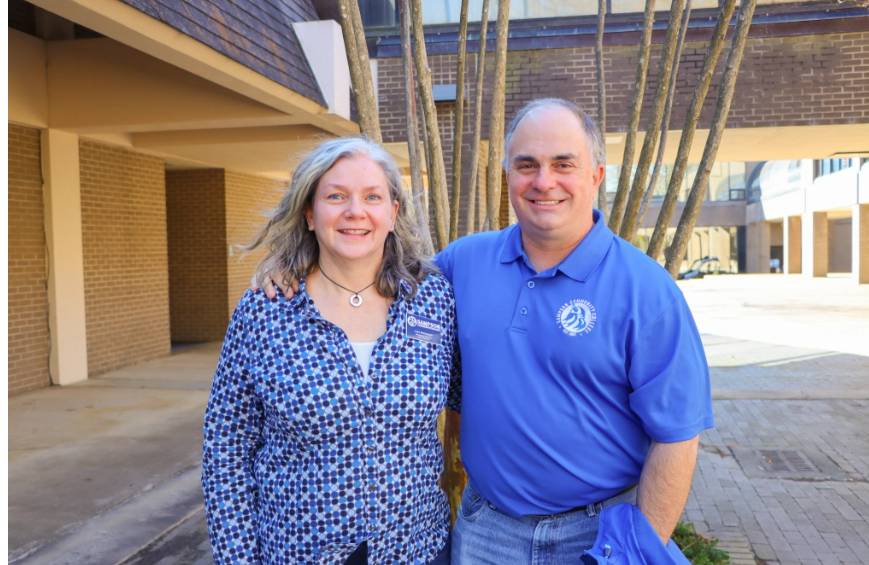It’s been a little over a month since COVID-19 disrupted everyday life for most Americans. In that time, conversations persist about what is considered “essential,” and about how to continue with normal tasks and responsibilities as much as possible. Sampson Community College and other higher education institutions are no exception to this challenge—forced to make swift, responsible decisions about the educations of its students. At the front of these conversations stand healthcare workers, delivery drivers, grocery store workers, and more. In Sampson County, Sampson Community College has been and continues to be a cornerstone for educating students in critical careers like healthcare and public safety.
For years, Sampson Community College has been considered a pillar in Sampson County for providing quality education for students interested in the healthcare industry and public safety. When it came to making decisions regarding handling courses during the outbreak of the coronavirus, the College knew that maintaining this posture would benefit students and the community.

Nurses are regularly on the frontlines of administering care and evaluating patient health, even before a global pandemic. Dr. Lisa Smith, Associate Degree Nursing Department Chair, says ensuring students complete program requirements is imperative.
“The COVID-19 crisis has hit our nation hard and with a growing number of infected patients, comes an increased demand for nurses,” Smith stated. “Our goal is to help facilitate our health program students in completing their current courses.”
Smith says that the challenges of recent weeks have shown the resilience of faculty and staff at the college, commenting on the creative methods nursing faculty have used to connect with students. Instructors are accommodating students through online courses but do so without diminishing the quality of learning.
“Even in a time of uncertainty, we can pull together and get the job done. I am honored to work with such a devoted group of faculty who put student needs first,” Smith concluded.
This accommodating nature and drive for compassion can also be found in the EMS department at Sampson Community College, who are delivering courses online as well. Department Chair and EMS Coordinator, Angela Magill, says that because EMS is often the first call, ensuring that students are properly trained and ready to graduate quickly became a priority for the program.
“Our EMS clinicians are first on the ‘battlefield’ and make critical decisions based on the patient’s signs and symptoms. The quick decisions that are made by these clinicians make the difference,” she expressed.
James Demay, EMS Instructor and Clinical Coordinator, says even in these times, the department understands the importance of making sure students complete vital skills training. If anything, students receive more real-world training due to the nature of the changes being made.
“The State Office of EMS has helped educational institutions by altering some of the rules to allow flexibility for clinical experiences. The students are not performing any differently than they would as a professional on the job, therefore they are subject to the same safety measures as working professionals,” Demay shared.
With nursing and EMS, state offices and boards have been working diligently to make testing and clinical hours more accessible and accommodating during this time—without slighting the educational factors and learning outcomes for students.
When it comes to public safety coursework—like Basic Law Enforcement Training—courses have continued with minor setbacks. Because there has been a statewide shortage in law enforcement officers over the years, continuing with the coursework was a difficult, but necessary task.
Program Director, Anthony Davis stated, “We must get students ready here in the academy to face the tasks of a law enforcement officer when they get to their respective agency. We are taking precautions in and out of the classroom to make sure we’re doing our part to keep everyone healthy.”
These areas—nursing, EMS, law enforcement—each experienced shortages before the COVID-19 pandemic, or as a result of it. Therefore, the North Carolina Community College System released a statement allowing coursework to continue for healthcare students and first responders.
Sampson Community College expresses its deepest gratitude to healthcare workers, first responders, and public safety workers for their commitment, especially during this time.
About Sampson Community College: Sampson Community College is a member of the North Carolina Community College System, located in Clinton, NC in Sampson County. The college offers many programs to include two-year degrees, college transfer, continuing education and workforce development options, and early college education.

